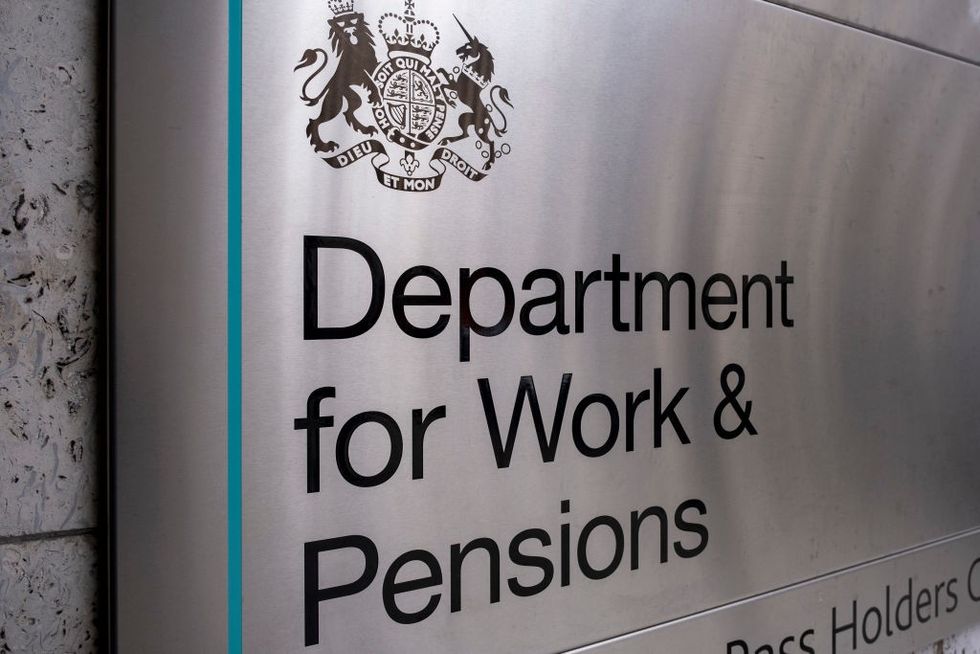The DWP is under fire for not providing Britons with their full state pension entitlement despite many having made over 35 years of National Insurance contributions
Don't Miss
Most Read
Trending on GB News
A pensioner who worked for 50 years has found he will not be eligible for the full new state pension despite having worked for 50 years, and made National Insurance contributions for the five decades.
GB News reader Keith Pitt, 69, from Devon. has not been able to claim the full new state pension despite having worked since the age of 16.
Pitt will get £974 a year less than the full pension this new tax year.
Before this month’s triple lock rate increase, Pitt received £749.12 every four weeks from the state pension.
Now, he will get £812.79 every four weeks which is significantly less than the full new state pension rate of £884.80.
On top of this, Pitt gets no other pension-related benefits from the Department for Work and Pensions (DWP).
Do you have a money story you’d like to share? Get in touch by emailing money@gbnews.uk.

Britons are speaking out about not getting their full state pension entitlement
GETTY
He explained: “I worked for 50 years paying National Insurance from the age of 160. Never unemployed or claiming benefits.
“Having looked at my National Insurance record on the Government’s website there are no short falls or any missing payments."
According to the 69-year-old, he opted out of the State Earnings Related Pension Scheme (SERPS) which was introduced in 1978 as a top-up to the basic state pension.
The sum a claimant would get was based on their contributions during their working life with someone being eligible if they were an employee making Class 1 National Insurance Contributions.
Self-employed individuals were never eligible for SERPS which was replaced by the second state pension in April 2002.
Under state pension rules prior to 2016, workers could choose to opt out of their SERPS which many were people were advised to do.
If someone chose to do this, some of their National Insurance contributions were either lower than people who were not contracted out or paid into another private pension.
However, even when taking these 10 years into account, Pitt still thought he met the criteria to get the full state pension entitlement due to paying 35 years’ worth of contributions to National Insurance.
Pitt slammed the decision by the DWP to award him less than the full amount, calling it blatantly “unfair”.
“It has impacted me. Before, I was entitled to the state pension. This seems like a policy decision that has left people like me working all their life in a negative situation,” he explained.
“It seems very unfair that someone never working in their life would receive a full pension. I know somebody who opted out just before me who got the full pension.
“Somebody I worked with, who again opted out, had a lower pension. In 2021, he rang the pensions department and came back with a full pension.
“The thing that’s unfair, even if you take the 10 years off, I’ve still got 40 years of National Insurance [contributions].”
LATEST DEVELOPMENTS:

Pensioners are taking aim at decision-making by the Government
GETTY
Becky O’Connor, the director of Public Affairs at PensionBee urged workers to “regularly check” their state pension record.
She explained: “Understanding the number of qualifying years you've accumulated is crucial; while 10 qualifying years provides some State Pension support, eligibility for the full State Pension typically requires 35 qualifying years.
“By monitoring your record regularly, you can identify any gaps and take necessary actions to address them. This could involve claiming National Insurance credits or making voluntary contributions to fill in the gaps.
“Common situations leading to gaps include periods of unemployment or caregiving responsibilities. You may still be eligible for National Insurance credits during these times, however, it’s important to remember that certain credits can only be backdated for a limited period.”
GB News has contacted the DWP for comment.









